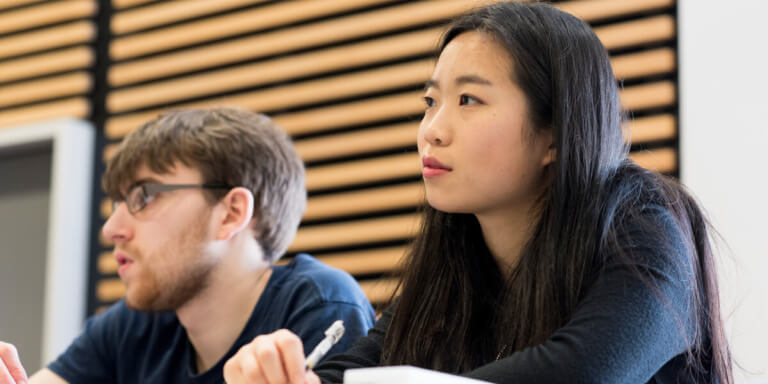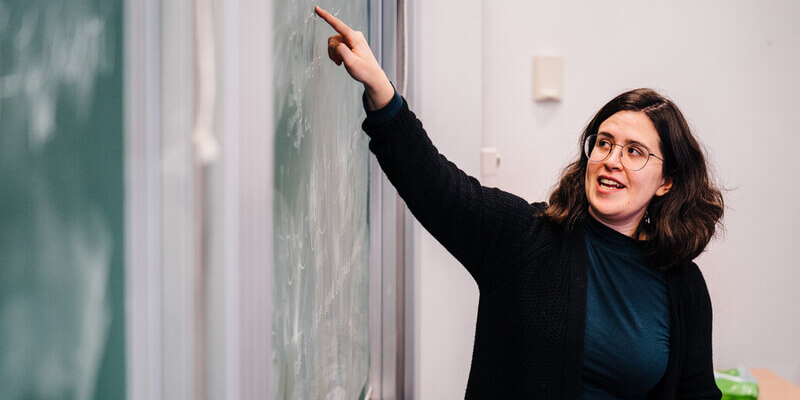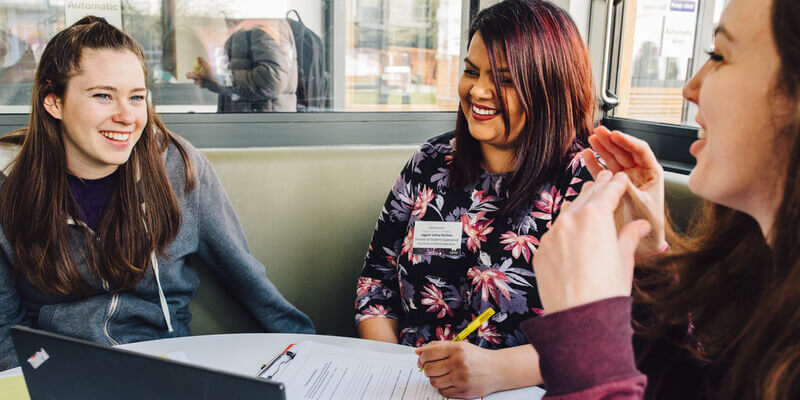Careers

Great prospects, and great support
As a graduate with a degree in mathematics, your career prospects will be exciting and wide-ranging. When that degree comes from Warwick, you’ll be given superb careers support throughout your time with us to help you make the most of the skills you’ll be building throughout your studies and take the next steps towards your dream career.
Within the maths department, we have a dedicated careers consultant who will offer you advice and guidance on what might be ahead after you graduate, and how you might get there. This support is free and available to you at any time during your studies with us.
300
leading employers visit campus each year for careers fairs, employer presentations, or sector-specific events.
5th
Warwick graduates are the fifth most targeted by the UK's top graduate employers.
(The Graduate Market in 2023
published by High Fliers Research Ltd.)
91%
Warwick mathematics graduates in highly skilled employment 15 months after graduation.
(The Graduate Outcomes Survey 2020/21)
What can I do with a degree in maths?
The short answer is a lot!
As a maths student you will be developing a range of key employability skills – transferrable skills that employers look for in their new hires. For example, you would probably expect maths students to have superb analytical and problem solving skills, but your busy schedule, group work and certain modules will also develop your time management, professionalism, communication and digital literacy skills.
Here are just some examples of jobs that recent Warwick maths graduates have moved into, along with some of the relevant skills that they built during their time here.

Actuary
Actuaries analyse the financial costs of risk and uncertainty, and are an essential part of the insurance industry.
- Analytical skills and information literacy: identifying patterns and trends in complex data sets.
- Problem solving: identifying risk and developing ways for businesses to manage them.
- Communication: explaining complex technical matters to audiences without specialised knowledge, and clearly describing recommendations in reports and memos.

Economist
Economists typically research economic issues and may use mathematical models to help analyse and interpret data.
- Critical thinking: using sound reasoning to solve complex problems.
- Analytical skills and information literacy: reviewing data and observing patterns to draw logical conclusions.
- Digital literacy: using statistical analysis and other software to analyse data.

Maths Teacher
A good maths teacher will be able to get across their own passion for the subject and help young people find their own way to a solution.
- Communication: sharing ideas with students, other teachers and school staff, as well as communicating with parents.
- Professionalism: staying calm in difficult situations, staying organised, and setting a good example.
- Teamwork: helping your whole class thrive while also being part of your overall school community.

Data Analyst
Data analysts will scrutinise data to help identify key insights for businesses and organisations and generate information that helps other people make informed decisions.
- Digital literacy: writing code, developing and improving algorithms, using data visualisation tools, and analysing data.
- Problem solving: devising solutions to problems in data collection and cleaning, and in developing statistical models and algorithms.
- Communication: convey the results of any analysis to both technical and nontechnical audiences to help make business recommendations.

Financial Project Manager
A financial project manager will have responsibility for accounting, audits, budgetary control, long-term investments, and reporting.
- Analytical skills and information literacy: evaluating data and information that affects an organisation or business, with a view to helping leaders make decisions.
- Professionalism: organising and managing your time effectively and having a high attention to detail when preparing reports and balance sheets.
- Communication: being able to explain and justify complex financial transactions and recommendations.

Researcher
Many of our students continue to follow their academic passion for mathematics by completing a PhD and developing their own research specialisms.
- Problem solving and analytical skills: visualising a problem to be researched, building a research model, ten analysing and interpreting the results.
- Professionalism: planning projects, sound time management, applying for funding and managing budgets.
- Communication: explaining your findings in both written, scholarly, forms and orally through presentations at conferences and other public engagement work.
Hear from our alumni

Our community of Warwick Maths alumni is large, diverse, and full of great stories to tell. To get a better idea of some of the roles our graduates have gone into after studying with us, we’ve compiled some case studies.
Find out more about Student Life at Warwick
Accommodation
Whether you're considering joining Warwick for the first time or you’re currently studying with us, living on campus is the best way to experience Warwick.
Your Wellbeing
The Library
Warwick Sport
At the University of Warwick, we are very fortunate to have a fantastic campus that offers so many opportunities to participate in sport and physical activity.
